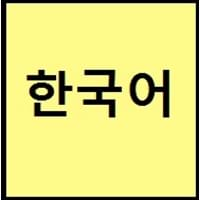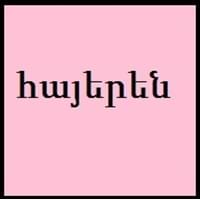Countries
China, Jilin Province, North Korea, South Korea, Yanbian
Armenian Highland
National Language
North Korea, South Korea
Armenia, Nagorno-Karabakh Republic
Second Language
Not spoken in any of the countries
Not spoken in any of the countries
Speaking Continents
Asia
Asia, Europe
Minority Language
Japan, People's Republic of China, Russia, United States of America
Cyprus, Hungary, Iraq, Poland, Romania, Ukraine
Regulated By
The National Institute of the Korean Language
Armenian National Academy of Sciences
Interesting Facts
- Korean has borrowed words from English and Chinese.
- Korean has two counting systems. First, is based on Chinese characters and numbers are similar to Chinese numbers, and second counting system is from words unique to Korea.
- The first language into which Bible was translated is Armenian.
- Christianity was recognized as a national religion in 301 by Armenia Country.
Similar To
Chinese and Japanese languages
Greek
Derived From
Not Available
Not Available
Alphabets in
Korean-Alphabets.jpg#200
Armenian-Alphabets.jpg#200
Scripts
Hangul
Armenian manuscript
Writing Direction
Left-To-Right, Horizontal, Top-To-Bottom
Left-To-Right, Horizontal
Hello
안녕하세요. (annyeonghaseyo.)
Բարեւ (Barev)
Thank You
감사합니다 (gamsahabnida)
Շնորհակալություն (Shnorhakalut’yun)
How Are You?
어떻게 지내세요? (eotteohge jinaeseyo?)
Ինչպես եք դուք? (Inch’pes yek’ duk’)
Good Night
안녕히 주무세요 (annyeonghi jumuseyo)
Բարի գիշեր (Bari gisher)
Good Evening
안녕하세요 (annyeonghaseyo.)
Բարի երեկո (Bari yereko)
Good Afternoon
안녕하십니까 (annyeong hashimnikka)
Բարի օր (Bari or)
Good Morning
안녕히 주무셨어요 (An-yŏng-hi ju-mu-shŏ-ssŏ-yo)
Բարի լույս (Bari luys)
Please
하십시오 (hasibsio)
Խնդրում եմ (Khndrum yem)
Sorry
죄송합니다 (joesonghabnida)
կներեք (knerek’)
Bye
안녕 (annyeong)
Ց'տեսություն
I Love You
당신을 사랑합니다 (dangsin-eul salanghabnida)
Ես սիրում եմ քեզ (Yes sirum yem k’yez)
Excuse Me
실례합니다 (sillyehabnida)
Ներեցեք ինձ (Nerets’yek’ indz)
Dialect 1
Jeju
Eastern Armenian
Where They Speak
South Korea
Armenia, Armenian Highland, Georgia, Iran, Nagorno-Karabakh Republic, Turkey
How Many People Speak
Not Available
Dialect 2
Gyeongsang
Western Armenian
Where They Speak
South Korea
Armenian Highland, Cilicia, Lebanon, Syria, Turkey
How Many People Speak
Not Available
Dialect 3
Hamgyŏng
Not Applicable
Where They Speak
China, North Korea
Not Applicable
Speaking Population
Not Available
Native Name
한국어 (조선말)
Հայերէն (Hayeren)
Alternative Names
Hanguk Mal, Hanguk Uh
Armjanski Yazyk, Ena, Ermeni Dili, Ermenice, Somkhuri
French Name
coréen
arménien
German Name
Koreanisch
Armenisch
Pronunciation
Not Available
[hɑjɛˈɾɛn]
Ethnicity
Koreans
Armenians
Origin
Before 1st century
late 5th century
Language Family
Koreanic Family
Indo-European Family
Subgroup
Not Available
Not Available
Branch
Not Available
Not Available
Early Forms
Old Korean, Middle Korean and Korean
Proto-Armenian, Classical Armenian, Middle Armenian, Armenian
Standard Forms
Pluricentric Standard Korean, South Korean standard and North Korean standard
Eastern Armenian, Western Armenian
Language Position
Not Available
Signed Forms
Korean Sign Language
Not Available
Scope
Individual
Individual
ISO 639 6
Not Available
Not Available
Glottocode
kore1280
arme1241
Linguasphere
45-AAA
57-AAA-a
Language Type
Living
Not Available
Language Linguistic Typology
Subject-Object-Verb
Subject-Object-Verb
Language Morphological Typology
Agglutinative
Agglutinative, Synthetic
Korean and Armenian Greetings
People around the world use different languages to interact with each other. Even if we cannot communicate fluently in any language, it will always be beneficial to know about some of the common greetings or phrases from that language. This is where Korean and Armenian greetings helps you to understand basic phrases in Korean and Armenian language. Korean word for "Hello" is 안녕하세요. (annyeonghaseyo.) or Armenian word for "Thank You" is Շնորհակալություն (Shnorhakalut’yun). Find more of such common Korean Greetings and Armenian Greetings. These greetings will help you to be more confident when conversing with natives that speak these languages.
Korean vs Armenian Difficulty
The Korean vs Armenian difficulty level basically depends on the number of Korean Alphabets and Armenian Alphabets. Also the number of vowels and consonants in the language plays an important role in deciding the difficulty level of that language. The important points to be considered when we compare Korean and Armenian are the origin, speaking countries, language family, different greetings, speaking population of these languages. Want to know in Korean and Armenian, which language is harder to learn? Time required to learn Korean is 88 weeks while to learn Armenian time required is 44 weeks.





